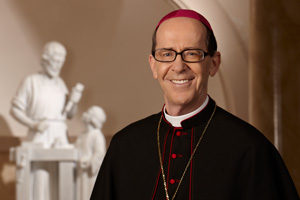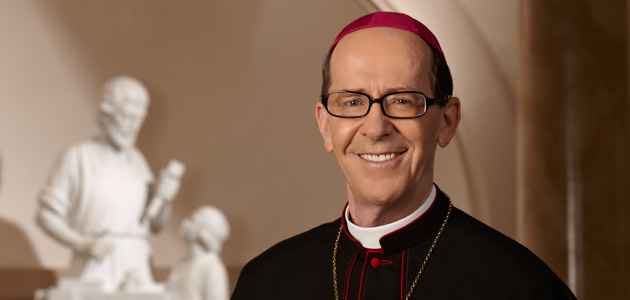
In the previous editions of The Catholic Sun, we spoke about the “scandal” of the Cross of Christ, which is no scandal at all but rather “the power of God and the wisdom of God” (Cf. 1 Cor 1:7ff) and, then, about true scandals that lead others to sin, that impede them from doing what is right and that place a stumbling block along the path to their eternal destiny in heaven. Now, let us turn our attention to the roots of scandal, and then to key ways to counteract scandal’s destructive impact.
The roots of scandal
What motivates a person to scandalize another? What kind of attitude is behind this destructive act? If we are to reflect on what lies at the root of scandal, we can see that it arises from an attitude all-too-common in society today, namely that of indifference, the attitude expressed in three terrible words, “I don’t care.” It is this lack of concern for others that leads a person to be ambivalent about how their actions impact other people. Seen in their most dramatic form, scandalous actions negatively affect the salvation of one’s neighbor and demonstrate a profound lack of charity.
We live in a culture that presents the greatest good as any particular “thing” that a person wants or feels will provide them with some measure of self-fulfillment. This attitude, if allowed to take root within the human heart, becomes a sort of narcissistic disease that prohibits a person from being concerned about anyone other than himself, leaving him able to pursue only his own fulfillment. As we know, Jesus commands us to love one another as He loves us. This sacrificial love, which Christ gives us the grace and the desire to put into practice, is the antithesis of what is promoted in our culture.
Moral indifference also spreads like wildfire when unrestrained freedom becomes an end in itself, without regard for the use of that freedom. “Pro-Choice” jargon is a popular example of this pitfall, wherein a “choice” is trumpeted as a right that must be defended in law without regard for what the “choice” might be. In fact, the “choice” defended by this slogan is the choice to kill an unborn child without any legal consequences. Only crass indifference to the plight of the most innocent and vulnerable among us could stand by and allow such “pro-choice” rhetoric to win the day.
Oppose scandal with the truth
What, then, are we to do in order to expose scandal’s roots and to oppose its destructive venom? We can begin by following the sage advice of John Paul II in his Encyclical The Gospel of Life (#58), “Given such a grave situation, we need now more than ever to have the courage to look the truth in the eye and to call things by their proper name, without yielding to convenient compromises or to the temptation of self-deception… But no word has the power to change the reality of things.”
A false notion of compassion often hinders our ability “to look the truth in the eye.” Genuine compassion can be watered down by letting feelings run roughshod over clear thinking. Then, the rights and dignity of one person (to whom our heart goes out) can overshadow the rights and dignity of another. This happens frequently in the case of abortion. Our late Holy Father wrote (Ibid), “It is true that the decision to have an abortion is often tragic and painful for the mother, insofar as the decision to rid herself of the fruit of conception is not made for purely selfish reasons or out of convenience, but out of a desire to protect certain important values such as her own health or a decent standard of living for the other members of the family… Nonetheless, these reasons and others like them, however serious and tragic, can never justify the deliberate killing of an innocent human being.”
Faithful witnesses to truth and love
The witness of one’s life is the first and fundamental way to bear witness to the truth. As Pope Paul VI often said, “Modern man listens more willingly to witnesses than to teachers, and if he does listen to teachers, it is because they are witnesses.”
Using the symbols of salt and light, Jesus teaches us of the duty we have to bear witness to the truth of the Gospel (Mt 5:13-16), “You are the salt of the earth. But if salt loses its taste, with what can it be seasoned? It is no longer good for anything but to be thrown out and trampled underfoot. You are the light of the world. A city set on a mountain cannot be hidden. Nor do they light a lamp and then put it under a bushel basket; it is set on a lampstand, where it gives light to all in the house. Just so, your light must shine before others, that they may see your good deeds and glorify your heavenly Father.”
The mission to be salt and light for the world will never be fulfilled if our lives are not centered in Christ, in whom the fullness of truth abides, and if our lives are not conformed in obedience to His word. When we live in Him and let His word take possession of our minds and hearts, then, whatever is contrary to truth cannot remain rooted in our lives. Our communion with Him also gives us the courage and wisdom to defend the truth when that is required.
Two wings on which the human spirit rises
Our struggle against scandal requires a twofold approach. On the one hand, we need humility and perseverance. For there are scandals by members of the Church herself, which humiliate and discourage her members, and which are used by opponents to discredit our faithful witness to the truth. However, these should not and must not cause us to despair. Let us recall that, since the betrayal of Judas and in every century down to the present day, the Church has lived with scandalous behavior among some of her members and still managed not just to survive but even to thrive and to bear good fruit. The truth that we profess and that we lift up, after all, is not just one opinion among many; it is not a relativistic phenomenon that changes according to the fads and fashions of the times; it is an unchanging wisdom that has its origin in God and frequently is written in our human nature. So, we need, in the face of these homegrown scandals, to humbly stand strong and to put all our trust in the mercy of God.
On the other hand, the Church serves the human family in this skeptical age by insisting that it is possible for the truth to be known and for men and women of our time to conform their lives to its demands. The truth can be learned through two paths: faith and reason. In his encyclical by that name (Fides et Ratio, #1), John Paul II wrote, “Faith and reason are like two wings on which the human spirit rises to the contemplation of truth; and God has placed in the human heart a desire to know the truth — in a word, to know himself — so that, by knowing and loving God, men and women may also come to the fullness of the truth about themselves.”
Since the truth can be known, and since there are two wings by which to fly to its height, then with great hope we can pursue the truth, and with equal hope we can strive to put it into practice, confident that God will supply the grace we need to succeed. Such efforts are, in the long run, the strongest antidotes to scandal and a sure path to discover the wisdom of the Cross.






![[VIDEO] Make Sunday feel like Sunday again](https://www.catholicsun.org/wp-content/uploads/2021/04/2021-YOUTUBE-BISHOP-MESSAGE-THUMBNAIL-ENGLISH-218x150.png)
